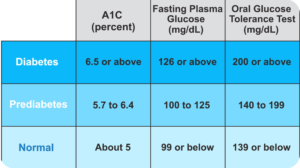Somatic therapy addresses the mind, body, and spirit as interlinked and interdependent, combining talk therapy, mental exercises, and physical manipulation to heal unhealthy mental and emotional conditions—most specifically, trauma. Although most of us might assume that psychological issues lie only in the mind, somatic therapists believe those issues can be addressed by working with and through the body, especially as it manifests the connection with emotions. Practitioners are trained to discover where in the body psychological trauma is being held and manifested, and then to work with the body, mind, and emotions to release or transform that trauma.

Somatic therapists use both psychotherapy and physical tools such as breathwork, dance, massage, and meditation. The therapy is done in both one-on-one and in group settings.
Different types of somatic therapy are used to treat a range of mental and emotional issues, including anxiety and depression, addictive behaviors, PTSD, debilitating grief, and general stress. The therapy is used to a lesser degree for a handful of physical conditions, including chronic pain management, digestive problems, and sexual issues.
Practitioners specialize in one of several types of somatic therapy. These include:
- Bioenergetic analysis. This involves the therapist focusing on the energy flowing between the patient’s mind and body, and the physical expression of that energy. It includes elements of psychoanalysis and bodywork. The practitioner seeks to foster the patient’s mindful self-perception, and self-expression, to eliminate negative symptoms.
- Biodynamic psychotherapy. Combining talk therapy with bodywork, the therapist attempts to expose underlying trauma so that the patient can examine, understand, and move past the held trauma.
- Brainspotting. Brainspotting utilizes some of the same techniques as the other practices on this list, but this type of therapy involves working with the patient’s eye positioning as a tool to redirect emotional reactions to stimuli.
- Sensorimotor psychotherapy. The therapist unlocks unresolved trauma by providing a safe environment for patient to, in a way, relive a traumatic event and experience the physical sensations the patient associates with that event. The therapy involves both talking and body exercises, and the intention is help the sufferer experience closure around the trauma. It is used to treat conditions such as PTSD, addiction, and sexual abuse.
- The Hakomi Method. This therapy uses a psychotherapeutic approach, although it does involves psychological, physical, and spiritual components. The Hakomi Method traditionally focuses on five foundational traits: mindfulness, nonviolence, mind-body integration, unity, and organicity.
All forms of somatic therapy involve both emotional engagement and physical awareness or actual bodywork. Specific tools range from reenacting the physical sensations of trauma, to exploring the physical manifestations of unconscious states, to describing trauma in detail and developing a heightened awareness of emotional states and reactions that arise in response to that trauma.
Finding the right somatic therapist for you involves understanding what approach the practitioner focuses on, and determining if you feel comfortable with that type of therapy. Somatic therapy involves a deep bond of trust between patient and practitioner, so you need to feel comfortable with whatever practitioner you choose.
Somatic therapy has shown promise in studies and in practice, although much more research needs to be conducted into the potential efficacy of this innovative healing approach.
Share some love if you like this post!





